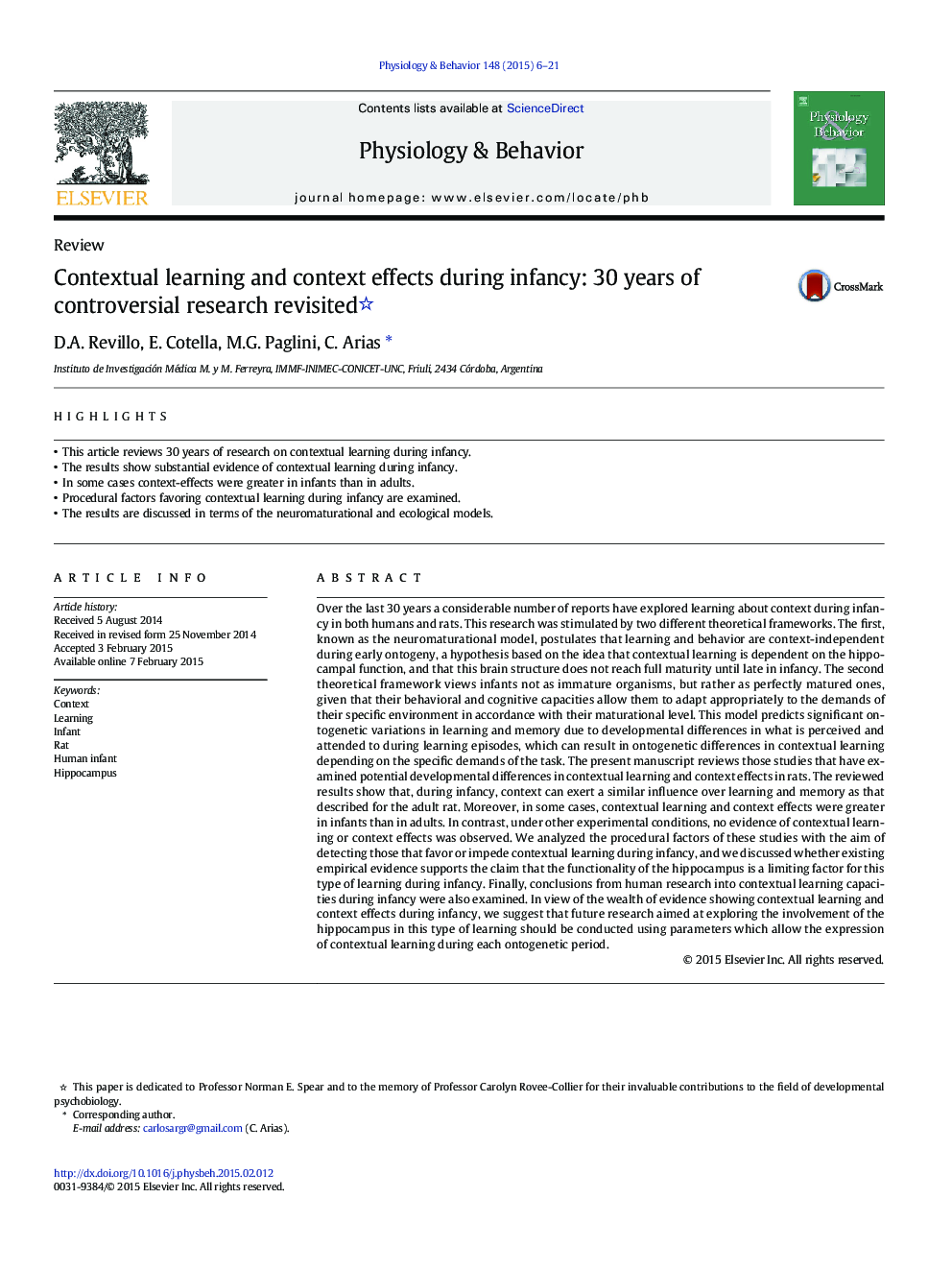| Article ID | Journal | Published Year | Pages | File Type |
|---|---|---|---|---|
| 2844088 | Physiology & Behavior | 2015 | 16 Pages |
•This article reviews 30 years of research on contextual learning during infancy.•The results show substantial evidence of contextual learning during infancy.•In some cases context-effects were greater in infants than in adults.•Procedural factors favoring contextual learning during infancy are examined.•The results are discussed in terms of the neuromaturational and ecological models.
Over the last 30 years a considerable number of reports have explored learning about context during infancy in both humans and rats. This research was stimulated by two different theoretical frameworks. The first, known as the neuromaturational model, postulates that learning and behavior are context-independent during early ontogeny, a hypothesis based on the idea that contextual learning is dependent on the hippocampal function, and that this brain structure does not reach full maturity until late in infancy. The second theoretical framework views infants not as immature organisms, but rather as perfectly matured ones, given that their behavioral and cognitive capacities allow them to adapt appropriately to the demands of their specific environment in accordance with their maturational level. This model predicts significant ontogenetic variations in learning and memory due to developmental differences in what is perceived and attended to during learning episodes, which can result in ontogenetic differences in contextual learning depending on the specific demands of the task. The present manuscript reviews those studies that have examined potential developmental differences in contextual learning and context effects in rats. The reviewed results show that, during infancy, context can exert a similar influence over learning and memory as that described for the adult rat. Moreover, in some cases, contextual learning and context effects were greater in infants than in adults. In contrast, under other experimental conditions, no evidence of contextual learning or context effects was observed. We analyzed the procedural factors of these studies with the aim of detecting those that favor or impede contextual learning during infancy, and we discussed whether existing empirical evidence supports the claim that the functionality of the hippocampus is a limiting factor for this type of learning during infancy. Finally, conclusions from human research into contextual learning capacities during infancy were also examined. In view of the wealth of evidence showing contextual learning and context effects during infancy, we suggest that future research aimed at exploring the involvement of the hippocampus in this type of learning should be conducted using parameters which allow the expression of contextual learning during each ontogenetic period.
